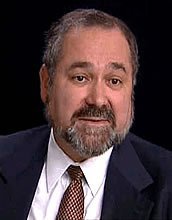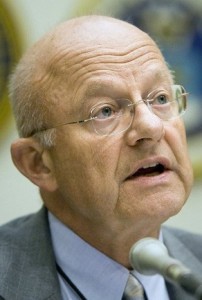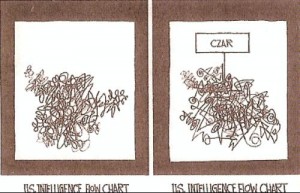Lord James of Blackheath: 2009 to 2010 Massive Money Laundering Between USA, England, and Scotland — Three Possibilities
03 Economy, 04 Indonesia, 07 Other Atrocities, 08 Wild Cards, 11 Society, Budgets & Funding, Commerce, Corruption, General Accountability Office, Government, Intelligence (government), Methods & Process, Money, Banks & Concentrated Wealth, Office of Management and Budget, Power Behind-the-Scenes/Special Interests, Secrecy & Politics of SecrecyLord James of Blackheath, House of Lords [VIDEO 11:10] from 2010, now circulating
Breaking news Lord James of Blackheath has spoken in the House of Lords holding evidence of three transactions of 5 Trillion each and a transaction of 750,000 metric tonnes of gold and has called for an investigation.
I think there are three possible conclusions that may come from it. I think there may have been a massive piece of money laundering committed by a major government which ought to know better and that it has effectively undermined the integrity of the British bank the Royal Bank of Scotland, in doing so. The second alternative is that a major American department has an agency that has gone rogue on it because it has been wound up and has created a structure out of which they are seeking to get at least 50 billion Euros as a payoff. And the third possibility is that this is an extraordinarily elaborate fraud which has not been carried out but which has been prepared in order to provide a threat to one government or more if they don't pay them off. So there are three possibilities and this all needs a very urgent review.
My Lords, it starts in April and May of 2009, with the alleged transfer to the United Kingdom, to HSBC of a sum of 5 trillion dollars and seven days later, in comes another 5 trillion dollars to HSBC, and then 3 weeks later another 5 trillion. 5 trillion in each case. Sorry. A total of 15 trillion dollars is alleged to have been passed into the hands of HSBC for onward transit to the Royal Bank of Scotland and we need to look at where this came from and what the history of this money is. And I have been trying to sort out the sequence by which this money has been created and from where it has come from for a long time.
http://www.rumormillnews.com/cgi-bin/forum.cgi?read=230593
http://www.publications.parliament.uk/pa/ld201212/ldhansrd/text/120216-0002.h…
Video: Evolution of “Big Brother” (Uncle Sam)
Methods & Process, Power Behind-the-Scenes/Special Interests, Uncategorized, Videos/Movies/DocumentariesRobert Steele: Intelligent Management of Intelligence Agencies, and the New Craft of Intelligence
Analysis, Budgets & Funding, Collaboration Zones, Collective Intelligence, Communities of Practice, Computer/online security, Counter-Oppression/Counter-Dictatorship Practices, Ethics, Geospatial, Hacking, History, Information Operations (IO), Intelligence (government), Key Players, Methods & Process, Officers Call, Open Government, Policies, Real Time, Reform, Resilience, Serious Games, Strategy, Technologies, Threats, Waste (materials, food, etc), Whole Earth Review
I have begun drafting my portion of the new Handbook of Intelligence Studies (Routledge, 2013), it is a chapter early on entitled “The Craft of Intelligence.” I pick up where Allen Dulles and Sherman Kent left off. My graphic on Intelligence Maturity captures the essence of my thinking at the strategic level, but of course there is more to come, including the desperate need to restore integrity to all that we do.
In 1988 I ghost-wrote for the Commandant of the Marine Corps an article that he enhanced and signed, “Global Intelligence Challenges in the 1990's.” At that time my focus was on the difference between the conventional threat and the emerging unconventional threat.
Now my focus is on the purpose and process of intelligence as decision-support. We must — we will — move from secret intelligence for the few to open intelligence for the many; from expensive centralized largely worthless intelligence to free and low-cost distributed intelligence relevant to every person at every level on every issue; from intelligence as window-dressing for channeling $80 billion a year to banks and corporations, to intelligence as an integral element of every aspect of a Smart Nation.
Today Owl sent me a link to an article, Philip E. Tetlock and Barabara A Mellers, “Intelligent Management of Intelligence Agencies,” American Psychologist, 2011, pp. 1-12. I respect Owl, so I printed it and read it twice.
This article is completely out of touch with reality and the authors have not bothered to familiarize themselves with the literatures pertinent to their endeavor. Out of 89 cited sources 12 are non-intelligence-related prior publications of the lead author, 1 is a prior publication of the second author, and 11 are ostensibly about intelligence but truly marginal selections. So 12% sources on the subject, 13% self-citation, and 75% escoteric psycho-babble irrelevant to the actual challenge. As an intelligence professional, I am offended that two ostensibly erudite individuals would dare to publish this trype without even a semblance of understanding of the subject under discussion.
See Also:
Robert Steele: The Craft of Intelligence – OLD vs. NEW
Here are a few comments and additional links:
John Robb: Four Sources of Trust, Crypto Not Scaling….
Advanced Cyber/IO, Blog Wisdom, Collective Intelligence, Communities of Practice, Computer/online security, Cultural Intelligence, Ethics, Methods & Process, Officers Call, Policies, Threats
Why The Global System is Killing Trust
Posted: 09 Feb 2012 03:35 PM PST
Trust is an essential building block of any economic and social system. Systems that attempt to operate without it inevitably fail. A loss of trust typically preceeds a collapse in legitimacy.
That's our future. Here's why:
Let's start with a philosopher “king” of crypt0-security, Bruce Schneier. He has a new book out called Liars and Outliers: Eneabling the Trust that Society Needs to Thrive (Wiley, 2012).
The book is all about the mechanisms for building trust. There are four mechanisms:
- moral controls,
- reputational pressure (shame),
- institutional pressure (legal system), and
- security controls (encryption, locks, etc.).
He contends (rightly) that in the modern world, we don't typically make/have the personal relationships required to build moral and reputational trust. We typically make impersonal relationships when we interact with a global economic system (you buy stuff made by people you don't know). As a result, we rely up on institutional (legal compliance) and security (to guard against bad behavior) to provide the level of trust necessary to make the global economy work.
There are two massive problems with that.
Legal compliance is increasingly a farce. Take the mortgage settlement the US government and the financial industry reached over rampant fraud in mortgage lending. I wrote a bit more about it on the Resilient Community blog if you want more detail. What does this mean? That even at the national level in a “developed country” it is impossible to use legal means to enforce trustworthiness (let's not even talk about compliance at the global level). It's doesn't work anymore. It's just too easy for anybody with financial means, to buy off country's legal system for pennies on the dollar (to the damage caused). The compliance system is broken.
So, that leaves us with security as the only way to prevent bad actors from running away with the global system. This leads me to a great presentation I heard yesterday by Dan Geer. He's another philosopher “king” of crypto-security (but for the CIA). Very smart guy. He made a convincing case that security is scaling slower than data, bandwidth, node, and user growth. It is falling behind and will continue to fall behind as the global system grows.
Upshot: it's already nearly impossible to secure big organizations. Every Fortune 500 company has and will continue to compromised. The government's systems are already a sieve. There's almost nothing that can be done about it and it will get increasingly worse. Forget about securing a single person trying to connect to the global system. They are just sheep ready for slaughter.
So, what happens now?
The global system will continue to grow. Trust will continue to leak as attempts at compliance and security fail to work effectively. The economic depression we have already started gets worse and worse and worse. Disorder erupts. It grows….
Is there a solution? An alternative form of social order that can provide a scalable global solution?
Yes. Resilient communities. Resilient communities rescale your life down to a rational level. They make personal relationships with the people that economically interact with you possible (again).
Hey, let the rest of the world sink into the squalor of a trust free world. It will make that system easier to trounce in head to head competition for people.
See Also:
Robert David Steele, THE OPEN SOURCE EVERYTHING MANIFESTO: Transparency, Truth, & Trust (Evolver Editions, 5 June 2012)
and
Ralph Peters: Testimony to Congress on Pakistan As a Failing Empire, Focus on Baluchistan
Analysis, Budgets & Funding, Corruption, Cultural Intelligence, Government, Hill Letters & Testimony, History, InfoOps (IO), Intelligence (government), IO Impotency, Key Players, Methods & Process, Military, Officers Call, Policies, Strategy, Threats, True Cost
Subcommittee on Oversight and Investigations
House Committee on Foreign Affairs
Baluchistan Hearing, February 8, 2012
Testimony of Ralph Peters, military analyst and author
“PAKISTAN AS A FAILING EMPIRE”
2012-02-09 Ralph Peters House Testimony, Baluchistan and Pakistan (8 pages, doc)
Introductory remarks: This testimony arises from three premises.
First, we cannot analyze global events through reassuring ideological lenses, be they left or right, or we will continue to be mistaken, surprised and bewildered by foreign developments. The rest of the world will neither conform to our prejudices nor behave for our convenience.
Second, focusing obsessively on short-term problems blinds us to the root causes and frequent intractability of today’s conflicts. Because we do not know history, we wave history away. Yet, the only way to understand the new world disorder is to place current developments in the context of generations and even centuries. Otherwise, we will continue to blunder through situations in which we deploy to Afghanistan to end Taliban rule, only to find ourselves, a decade later, impatient to negotiate the Taliban’s return to power.
Third, we must not be afraid to “color outside of the lines.” When it comes to foreign affairs, Washington’s political spectrum is monochromatic: timid, conformist and wrong with breathtaking consistency. We have a Department of State that refuses to think beyond borders codified at Versailles nine decades ago; a Department of Defense that, faced with messianic and ethnic insurgencies, concocted its doctrine from irrelevant case studies of yesteryear’s Marxist guerrillas; and a think-tank community almost Stalinist in its rigid allegiance to twentieth-century models of how the world should work.
If we do not think innovatively, we will continue to fail ignobly.
Robert Steele: The Craft of Intelligence – OLD vs. NEW
Advanced Cyber/IO, Communities of Practice, Cultural Intelligence, Director of National Intelligence et al (IC), Earth Intelligence, Ethics, InfoOps (IO), Intelligence (government), Key Players, Methods & Process, Officers Call, Policies, Reform, Serious Games, Threats
UPDATED 18 January 2014
Intelligence Chief Describes Complex Challenges. America and the world are facing the most complex set of challenges in at least 50 years, the director of national intelligence told the Senate Select Committee on Intelligence here today.
James R. Clapper Jr. said capabilities, technologies, know-how, communications and environmental forces “aren't confined by borders and can trigger transnational disruptions with astonishing speed.”
“Never before has the intelligence community been called upon to master such complexity on so many issues in such a resource- constrained environment,” he added.
CIA Director David H. Petraeus, FBI Director Robert S. Mueller III, Defense Intelligence Agency Director Army Lt. Gen. Ronald L. Burgess Jr. and others accompanied Clapper during his testimony on Capitol Hill. Clapper spoke for all agencies in his opening statement.

All U.S. agencies are combating the complex environment and making sense of the threats by continuing to integrate the community and “by taking advantage of new technologies, implementing new efficiencies and, as always, simply working hard,” Clapper said.
Still, he said, all agencies are confronting the difficult fiscal environment.
“Maintaining the world's premier intelligence enterprise in the face of shrinking budgets will be difficult,” the director said. “We'll be accepting and managing risk more so than we've had to do in the last decade.”
Terrorism and proliferation remain the first threats the intelligence agencies must face, he said, and the next three years will be crucial. [Read more: Garamone/AFPS/31January2012]
Tip of the Hat to AFCEA.
Below the Line: Craft of Intelligence for the 21st Century
Continue reading “Robert Steele: The Craft of Intelligence – OLD vs. NEW”


